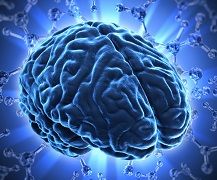Article
Epilepsy: Neural Antibodies May Indicate Immunotherapy
Author(s):
Epilepsy patients who are not responding to anti-epileptic drugs and who have antibodies binding neural antigens may benefit from immunotherapy. Reporting in the European Journal of Immunology Raffaele Iorio and colleagues at the Institute of Neurology, Catholic University in Rome, Italy detailed their findings.

Epilepsy patients who are not responding to anti-epileptic drugs and who have antibodies binding neural antigens may benefit from immunotherapy.
Reporting in the European Journal of Immunology Raffaele Iorio and colleagues at the Institute of Neurology, Catholic University in Rome, Italy detailed their findings. The researchers looked at 81 patients and 75 controls. In the treatment group, 39 patients had epilepsy and other neurological symptoms and/or autoimmune disease that were responsive to antiepileptic drugs (AEDs). The other 42 patients in the group were AED-resistant.
They collected patients’ serum and cerebrospinal fluid and looked for autoantibodies directed to neural antigens. Patients with AED-resistant epilepsy (22% or 18 patients) and neural autoantibodies were treated with immunotherapy. The testing was done with indirect immunofluorescences on frozen sections of mouse brain, cell-based assays and a radioimmunoassay.
They found that of 12 patients who were appropriate candidates and received immunotherapy 9 patients (75%) achieved at least a 50% reduction in the frequency of their seizures. Another 3 patients declined to have the treatment and their seizures continued at their usual rates.
The treatment regimens varied based on the specific type of neural antibodies identified—such as antibodies binding to glutamic acid decarboxylase, voltage-gated potassium channel complex, N-methyl-D-aspartate, and several others.
“A significant proportion of patients with AED-resistant epilepsy harbor neural-specific antibodies,” they concluded. “The detection of these antibodies, especially of those binding to synaptic antigens, may predict a favorable response to immunotherapy, thus overcoming AED resistance.”
The authors said about a third of epilepsy patients do not respond to AEDs. Many of these patients are classified as having an unknown cause of their epilepsy. “There is growing evidence that some types of epilepsies may have an autoimmune basis,” the researchers wrote.
The authors said the study was limited by the small size of the sample and the lack of a placebo arm.
“Randomized controlled trials with a single immune-modulatory/immunosuppressive agent or with a crossover design are needed in order to definitely establish the efficacy of immunotherapy in patients with AED-resistant epilepsy,” they wrote. But they believe their work shows immunotherapy will be effective for a subset of patients.




